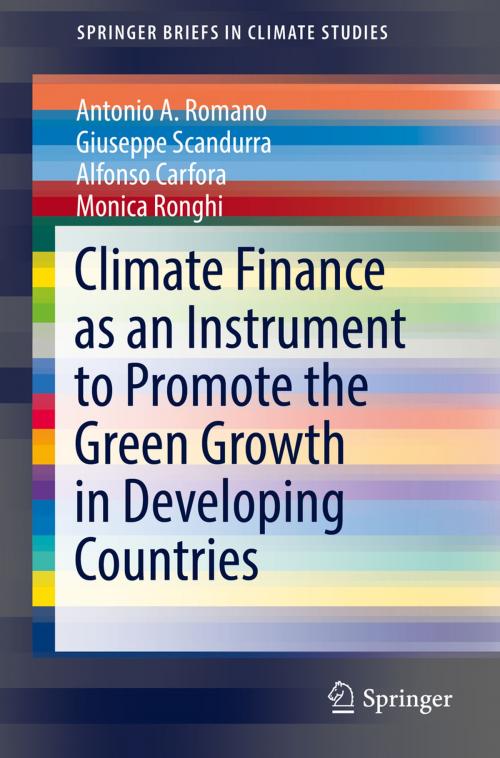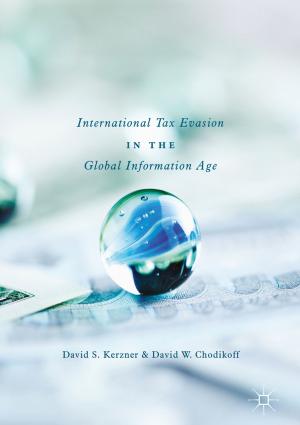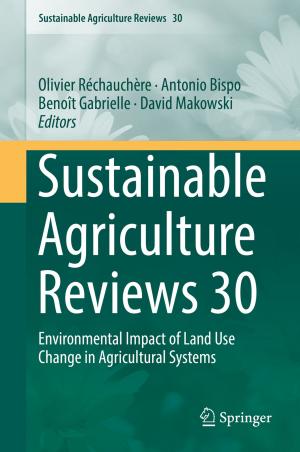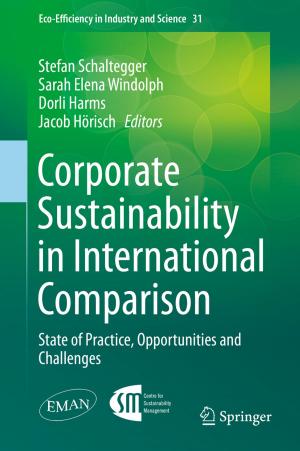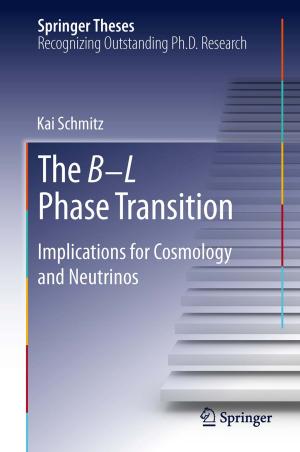Climate Finance as an Instrument to Promote the Green Growth in Developing Countries
Nonfiction, Science & Nature, Science, Biological Sciences, Environmental Science, Earth Sciences, Nature| Author: | Antonio A. Romano, Giuseppe Scandurra, Alfonso Carfora, Monica Ronghi | ISBN: | 9783319607115 |
| Publisher: | Springer International Publishing | Publication: | September 7, 2017 |
| Imprint: | Springer | Language: | English |
| Author: | Antonio A. Romano, Giuseppe Scandurra, Alfonso Carfora, Monica Ronghi |
| ISBN: | 9783319607115 |
| Publisher: | Springer International Publishing |
| Publication: | September 7, 2017 |
| Imprint: | Springer |
| Language: | English |
This book analyses the effectiveness of climate finance as political instrument to reduce the effect of anthropogenic activities on climate change and promote the green growth in developing countries.
The book highlights that close attention should also be paid to the analysis of political contexts in a broad sense. Particularly focusing on the international negotiations process that enables the direction of funds toward specific needs and priorities and the issue of access to electricity. For example, the difficulties that developing countries face when trying to improve their green economic development without access to carbon remains a matter of the utmost importance and urgency for many developing countries that lack significant aid from developed countries.
This book will be of interest to a wide body of academics and practitioners in climate change and energy policies. Moreover, this project is a valid instrument for students in energy policies and climate programs.
This book analyses the effectiveness of climate finance as political instrument to reduce the effect of anthropogenic activities on climate change and promote the green growth in developing countries.
The book highlights that close attention should also be paid to the analysis of political contexts in a broad sense. Particularly focusing on the international negotiations process that enables the direction of funds toward specific needs and priorities and the issue of access to electricity. For example, the difficulties that developing countries face when trying to improve their green economic development without access to carbon remains a matter of the utmost importance and urgency for many developing countries that lack significant aid from developed countries.
This book will be of interest to a wide body of academics and practitioners in climate change and energy policies. Moreover, this project is a valid instrument for students in energy policies and climate programs.
